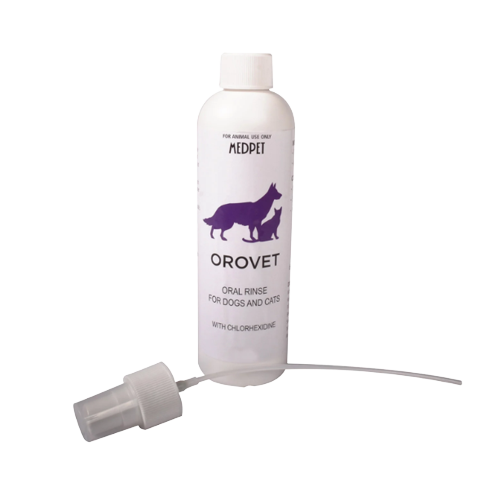Many pet owners are now seeking natural alternatives to conventional flea treatments, which can be laden with harsh chemicals. Essential oils, derived from plants, offer a safer, more natural option to help ward off these pesky parasites. This article explores the benefits of using essential oils in dog flea treatment, the most effective oils to use, and how they interact with fleas.
The Power of Essential Oils
Essential oils are highly concentrated aromatic substances extracted from various plant parts, such as flowers, leaves, bark, and roots. They possess a wide range of properties, including antimicrobial, anti-inflammatory, and insect-repelling capabilities. These attributes make essential oils a powerful tool in combating fleas and promoting overall pet wellness.

Effective Essential Oils for Dog Flea Treatment
- Lavender Oil: Lavender (Lavandula angustifolia) is a popular essential oil known for its calming and soothing properties. It is also an effective flea repellent due to its strong scent, which disrupts the fleas’ ability to locate their hosts. Lavender oil can be diluted and applied to your dog’s coat to prevent flea infestations.
- Lemongrass Oil: Extracted from the leaves of the Cymbopogon citratus plant, lemongrass oil is a potent flea repellent. Its high citral and geraniol content makes it highly effective in repelling fleas and other insects. The strong citrus scent of lemongrass oil confuses and overwhelms fleas, preventing them from locating their host.
- Eucalyptus Oil: Derived from the leaves of the Eucalyptus globulus tree, eucalyptus oil is known for its refreshing scent and antiseptic properties. It contains eucalyptol, a compound that can help repel fleas and other pests. When used in a diluted form, eucalyptus oil can provide a natural barrier against flea infestations.
- Peppermint Oil: Peppermint (Mentha piperita) oil is a popular essential oil with a fresh, invigorating scent. It contains menthol, which has a cooling effect and can help soothe irritated skin caused by flea bites. Its strong aroma can also help deter fleas from settling on your dog’s coat.
- Cedarwood Oil: Cedarwood (Cedrus atlantica) oil is extracted from the bark of cedar trees and has a warm, woody aroma. It is known for its insect-repellent properties, making it effective against fleas. Cedarwood oil works by disrupting the pheromone-driven navigation system of fleas, making it difficult for them to find and infest their host.
How Essential Oils Interact with Fleas
Essential oils work as flea repellents due to their strong aromas, which can interfere with the fleas’ ability to find their host. Some oils, like cedarwood and lemongrass, disrupt the fleas’ olfactory system, making it challenging for them to navigate and locate their prey. In addition, certain compounds found in essential oils, such as eucalyptol in eucalyptus oil, can act as natural insecticides.
Safety and Precautions
While essential oils can be an effective natural flea treatment, it is crucial to use them safely and appropriately. Always dilute essential oils with a carrier oil, such as coconut or olive oil, before applying them to your dog’s skin or coat.

Never apply undiluted essential oils directly on your pet, as this can cause skin irritation or even toxicity. Furthermore, consult with your veterinarian before using essential oils on your dog, especially if your pet has any pre-existing health conditions or is pregnant or nursing.
Some essential oils may not be suitable for all dogs, and individual pets may have different sensitivities. Always perform a patch test on a small area of your dog’s skin before applying any essential oil treatment. Observe for any signs of irritation, such as redness or itching. If any adverse reactions occur, discontinue use immediately and consult your veterinarian.
Application Methods
- Topical Application: Dilute the essential oil of your choice with a carrier oil and apply it directly to your dog’s coat, focusing on areas prone to flea infestations, such as the base of the tail, behind the ears, and around the neck. Be sure to avoid your dog’s eyes, nose, and mouth.
- Flea Collar: Create a homemade flea collar by adding a few drops of diluted essential oil to a bandana or soft cloth collar. This method allows the oil to provide continuous protection against fleas without the need for frequent reapplication.
- Spray: Combine water, a carrier oil, and a few drops of essential oil in a spray bottle to create a natural flea repellent spray. Shake well and mist your dog’s coat lightly, avoiding the face and any sensitive areas.
- Diffuser: Use an essential oil diffuser in your home to help repel fleas and create a pleasant scent. This method is particularly useful for preventative measures, as it helps to deter fleas from entering your living space.

Conclusion
Essential oils offer a natural and effective alternative to conventional flea treatments for dogs. By understanding the benefits of different oils and using them safely, you can protect your furry friend from flea infestations while promoting overall health and well-being. Be sure to consult with your veterinarian before starting any new flea treatment, and monitor your dog for any signs of irritation or adverse reactions. With the proper precautions and application methods, essential oils can provide a powerful defense against these persistent pests.
